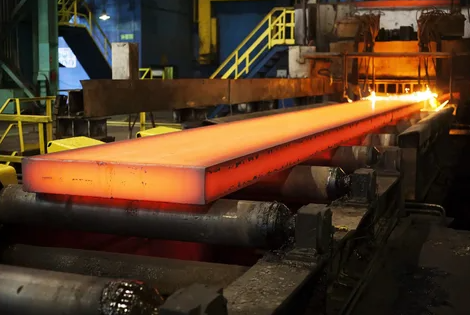The earthquakes that hit Turkey and Syria on February 6 destroyed buildings and claimed many thousands of lives. A complete renovation will take several years.
Immediately after that, all Turkish steel producers, whether they were in the disaster area or not, were busy only providing assistance. Trading operations have been suspended indefinitely. Vehicles, machinery, equipment and buildings are involved to support rescue efforts in the affected area.
It is not yet clear when steel production and shipping in Turkey will resume. The port of Iskenderun, for example, is severely damaged and incoming cargo, including scrap steel, is diverted. Turkish factories canceled sales orders, some of them declared force majeure but did not indicate when production could be resumed at the disturbed facilities. Letters of credit cannot be presented or modified in the absence of local banking services.
Before the earthquake, the activity of Turkish rolling mills in Europe had already declined. Quotas and possible duties limited the interest of both buyers and sellers.
Coil prices in Western Europe rose sharply in the first weeks of 2023. Service centers needed to replenish their depleted stocks, but domestic production continued to be constrained by previous capacity cuts. Delivery times and import offers, mainly from Asia, were unattractive. Steelmakers in the EU have taken advantage of increased apparent demand and limited competition to raise prices.
However, by early February, the upward momentum stopped. Steelmakers continued to announce further increases, but most buyers avoided these steps. Real demand shows no signs of a significant recovery and warehouse orders are currently placed.
Coil buyers question whether current prices can be maintained, given the lack of new business. They point to several factors which could lead to falling steel prices.
The automotive industry is not operating at full scale. Furthermore, several European producers have announced plans to bring idle steel capacity back on line. This could ease supply tightness. Moreover, a lack of recovery in the Chinese steel market would exert negative pressure on international steel values.
European buyers will attempt to resist new, increased domestic offers, as long as price sustainability remains in doubt. Mills will inevitably see a slowdown in order intake. This could temper their pricing ambitions, although early indications are that steelmakers will stay firm.
Short-term trend for longs uncertain
Long products, by contrast, saw almost universal negative price movements, month-on-month. This sector, however, is likely to feel the effect of Turkish disruption more quickly than flats.
The demand outlook, however, especially for construction, is weak. High inflation and rising interest rates have stifled new housebuilding works throughout Europe. As a consequence, steel stocks remain relatively high, despite efforts to reduce inventory.
Within the longs sector, beam producers have been most active in pushing for higher prices, with little success. Distributors are reluctant to replenish stock at levels close to outsell values, amid poor market conditions. Much of their current stock was purchased at the previous peak, in the middle of 2022.
Rising prices for scrap metal were offset by lower energy costs. However, the forced absence of Turkish buyers is changing the trend, causing a decline in the cost of scrap metal. Any attempt to raise steel prices on a cost basis is likely to fail in the short term.
The necessary restoration work in Turkey, once started, will change the flow of scrap metal and structural materials. Local factories will focus on domestic work, with other regional producers looking to make up any shortfall. In Europe, there may be less raw materials and rolled steel, and prices will rise.
Price growth for flat steel in Europe has stopped

|
|
Azovpromstal® 23 February 2023 г. 12:51 |





